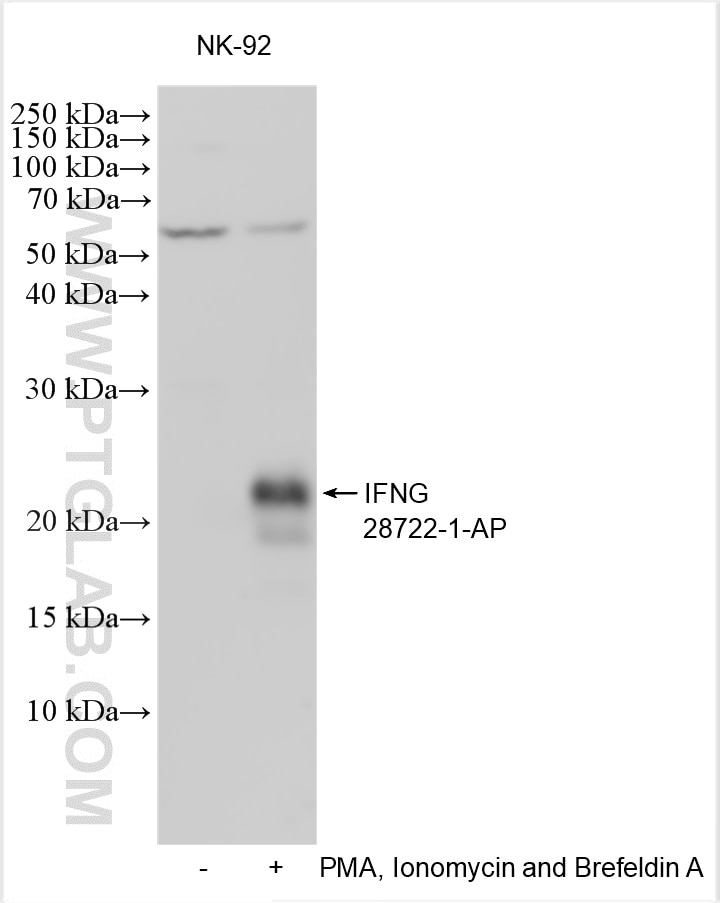Validation Data Gallery
Tested Applications
| Positive WB detected in | PMA, Ionomycin and Brefeldin A treated NK-92 cells |
Recommended dilution
| Application | Dilution |
|---|---|
| Western Blot (WB) | WB : 1:500-1:2000 |
| It is recommended that this reagent should be titrated in each testing system to obtain optimal results. | |
| Sample-dependent, Check data in validation data gallery. | |
Product Information
28722-1-AP targets IFN-gamma in WB, ELISA applications and shows reactivity with human samples.
| Tested Reactivity | human |
| Host / Isotype | Rabbit / IgG |
| Class | Polyclonal |
| Type | Antibody |
| Immunogen | IFN-gamma fusion protein Ag30371 相同性解析による交差性が予測される生物種 |
| Full Name | IFN gamma |
| Calculated molecular weight | 166 aa, 19 kDa |
| Observed molecular weight | 20-25 kDa |
| GenBank accession number | BC070256 |
| Gene Symbol | IFNG |
| Gene ID (NCBI) | 3458 |
| ENSEMBL Gene ID | ENSG00000111537 |
| RRID | AB_3086082 |
| Conjugate | Unconjugated |
| Form | Liquid |
| Purification Method | Antigen affinity purification |
| UNIPROT ID | P01579 |
| Storage Buffer | PBS with 0.02% sodium azide and 50% glycerol{{ptg:BufferTemp}}7.3 |
| Storage Conditions | Store at -20°C. Stable for one year after shipment. Aliquoting is unnecessary for -20oC storage. |
Background Information
Interferon gamma (IFNG) is a soluble cytokine that is the only member of the type II class of interferons. It is secreted by Th1 cells, cytotoxic T cells and NK cells. The cytokine is associated with antiviral, immunoregulatory and anti-tumor properties and is a potent activator of macrophages. It plays crucial roles in pathogen clearance. Aberrant IFNG expression is associated with a number of autoinflammatory and autoimmune diseases. It has been identified in many studies as a biomarker for pleural tuberculosis (TB). Mutations in this gene are associated with aplastic anemia.
Protocols
| Product Specific Protocols | |
|---|---|
| WB protocol for IFN-gamma antibody 28722-1-AP | Download protocol |
| Standard Protocols | |
|---|---|
| Click here to view our Standard Protocols |
